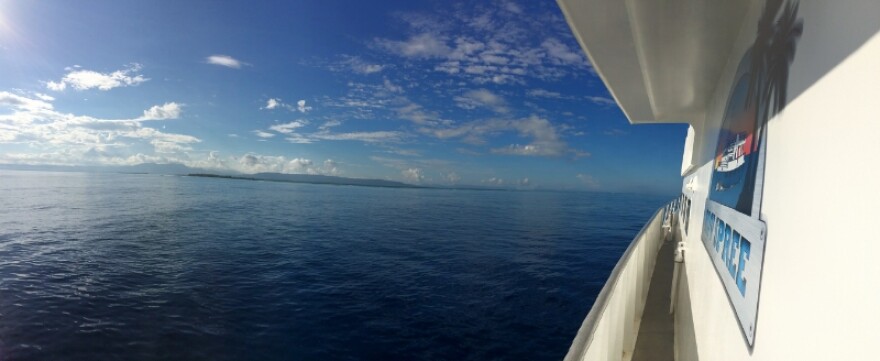Fifteen years ago, when Frank Wasson bought the motor vessel Spree, the boat was based in Texas and mostly ran dive charters to the Flower Garden Banks National Marine Sanctuary in the Gulf of Mexico. But he had another destination in mind.
When the recession hit in 2008 and the market couldn't support two dive charters out of Houston, Wasson moved the operation to Key West and started running trips to the Dry Tortugas and eventually got an international certificate to go to the Bahamas.
"Basically, all of this was in preparation for going to Cuba," Wasson says.
After President Barack Obama announced the resumption of diplomatic relations with Cuba and relaxed travel restrictions, Wasson redoubled his efforts to bring a U.S.-flagged dive charter to Cuban waters for the first time since 1962.
In July, the company got a permit from the Department of Commerce that allows it to bring the boat to Cuba and back to the United States. In September, the administration relaxed travel restrictions so people can travel to Cuba for educational purposes without individual licenses.
In late October, the Spree crossed the Straits carrying four crew members and 10 passengers. The passengers were marine biologists and educators who will help design the itinerary for future trips.
"We take them to Cuba. We show them the reef. We give classes on the boat on fish identifcation, on coral identification, on coral bleaching and disease, which, of course, this is a global bleaching year. So that's a very timely lesson to give," Wasson says. "These trips give a regular diver the opportunity to not only dive in Cuba but to learn something about the reefs, not only in Cuba but worldwide."
Wasson says that even though he had heard Cuban reefs were "untouched" compared to the reefs off the Keys, he was still impressed with their health.
"People that fish in Cuba, the locals that fish, they row their boats out to the reef and fish with a handline. So they're not overfishing their reefs like people in other countries who have depth sounders and fishfinders and three outboard engines on the back of their center console fishing boat," he says. "We did see some commercial fishing boats. But it's nothing on the scale like we have in the Florida Keys."
The Spree crew worked with the Hemingway International Yacht Club in Cuba, the same group that has helped facilitate the Havana Challenge sailboat race and powerboat flotilla between Key West and Havana. And Wasson says the people-to-people exchange on the trip included Cuban marine biologists and divemasters on the boat.
"We're not taking tourists down on a tourist trip. These are educational trips," Wasson says. "We have to certify to the U.S. government, as a Cuba tour provider, that these people are not going down there, going to Sloppy Joe's and drinking mojitos on their day in Havana. ... They're going to the aquarium. They're going to the museum of natural history."






